In the interest of not adding on to the massive pile of post drafts I already have, I'm trying something a bit different. I am going to write this post as I usually would, with one major exception: I cannot remove any words or change the meaning. Once I have typed it, I have typed it. I can clarify what I was trying to say. I can fix spelling and punctuation. I tried this with a different topic yesterday and was not successful, but maybe third time's the charm. Hopefully this reads less as a well structured well edited piece and more as a free flow of ideas, a written record of a conversation.
If you're perfectionistic with your writing, I challenge you to give this challenge a try. #NoGoingBackSpace.
Starting.... now.
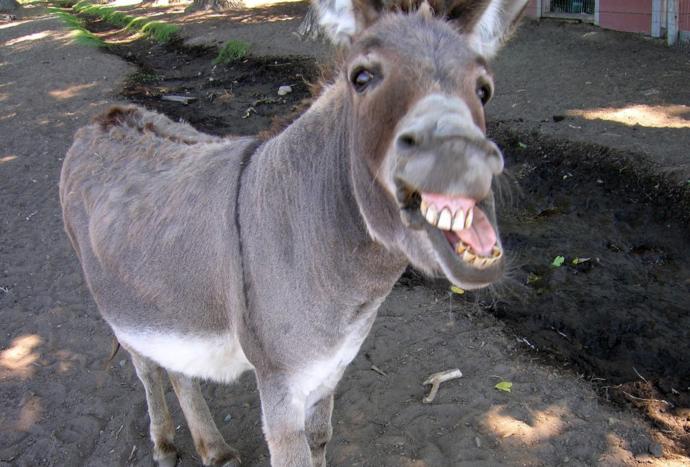
Whenever I hear conservatives talk about democrats, I get the sense that this is how they see them. Smug, oblivious, ready to kick at the slightest nuisance, goofing off and not addressing the actual issues. Most conservatives don't view Democrats as a monolithic entity, but I think a lot of conservatives aren't particularly fond of the stereotypical conservative. Which makes sense, because the stereotypical liberal throws a lot of shit. (*stereotypical liberal)^
In the interests of accuracy and clearly defining terms, I should say Republicans and democrats. Liberals and democrats, though used interchangeably, aren't exactly the same thing and neither are Conservatives and republicans. I've always thought Conservative/Liberal are attitudes, whereas Republican/Democrat are actual parties, reflecting those attitudes.
Anyways, here are all the reasons why I am a liberal and why I take a liberal stance (on both issues.) Or why I'm a Democrat. Whatever word is more accurate.
Global Warming
The weakest argument I've heard in favor of the idea that Global warming exists: it is hot today. The weakest argument I've heard in favor of the idea that Global warming does not exist: There is snow outside.
Maybe there's some important context missing, but if this is either his opening or closing argument, or even his middle argument, I can't imagine his other arguments being any better.
Generally speaking, scientists agree Global Warming is occurring. Most scientists believe humans are the cause. Scientists aren't as agreeable on the specifics- how much the Earth is warming and how dangerous the phenomenon is. As a non-scientist I can't argue why Global Warming does exist and why it needs to be addressed. Instead, I would argue that there is no reason not to address the issue. Even if factories aren't contributing to Global Warming, they are polluting the environment. Smog is a huge issue where I live. Look at China and the pollution China contends with. The prevalence of children born with Asthma. (or developing it- I'm not actually sure which- I think developing). If the air is that dirty, and it's impacting human health, that's a problem.
How to address the problem? The EPA. I'll delve more into government policy later on in this post. For now, I'm going to argue three things- one, regardless of scientific consensus, if Global warming is a significant issue and we do not address it, we're in trouble. If it turns out not to be a significant issue and we do address it, our air is still cleaner and we are all healthier as a result. Two, if Global warming does exist and humans are exacerbating the issue, humans, or rather their effects, are giving birth to stronger, more frequent hurricanes. Stronger thunderstorms and, by extension, Tornadoes. All of which are going to cause millions and millions of dollars in damage. And while it's impossible to say "this would have happened" or "this wouldn't be as strong and the damage would have been X instead of Y," that money will add up over time. Three, If Global warming turns out to be a hoax or not such a big issue, the steps taken to prevent it will be beneficial to society anyways. Cleaner air, development of new technologies, purer food and water. Indirectly, these benefits will offset many potential detrimental effects of Global warming rules.
I believe Global warming does exist and humans are the cause, like most of science. Like much of science, I believe Global warming poses a significant threat. (I'm hesitant to say most, because the argument is a bit woolly as is). But, even for those that do not believe it, I implore you to consider the potential benefits that could result from the steps taken to reduce Global Warming. Imagine using natural energy instead of oil. That would have prevented past wars. And that is possible.
The last argument to address- At this point in time, some scientists argue that Global Warming cannot be reversed or even stopped. The crisis is inevitable. But it isn't so black and white. If the warming of the oceans gives birth to more Hurricanes (as I believe it does) the more the ocean warms, the worse the storms could get. An increase in Hurricane activity isn't ideal, but it is preferable to a massive increase in Hurricane Activity.

To use an imperfect analogy- I don't lock my door at night because it is likely somebody is going to try it and burglarize my home. There's a good chance that will never happen. I lock it because, if somebody was trying to burglarize my home, hopefully that additional obstacle would either stop them or allow me time to get to safety. A crazed axe murder could kill me in my sleep, but the chances of that happening decrease if I lock the door. Where the analogy obviously falls apart is that there is no downside to locking the door. There are no potential detrimental effects. In that sense, perhaps a burglar alarm is a better representation- may be unnecessary but if the worst comes, I would rather have it than not even though it's expensive, even though it's a nuisance and goes off at the wrong times, even though it's far from perfect. But whereas the chances of somebody breaking in are quite slim, the chances of global warming causing issues are, according to scientists, quite high. So a better analogy would be if I was living in an area where sixty percent of homes are burglarized.
Government Regulation
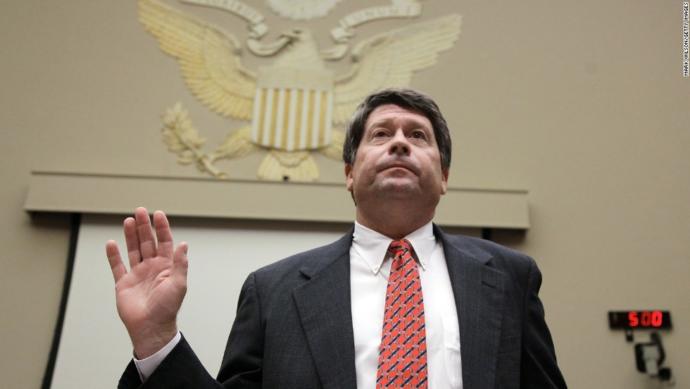
That man in the picture lost his company because it put out tainted products. But the story doesn't end there. Steve Parnell (Stewart... my bad) Stewart Parnell engaged in wire fraud, devised schemes, did not obey government regulations, altered lab tests, and killed nine people. Food manufacturers often encounter problems with their supply- what makes Stewart unique is how he addressed these issues. Parnell sent multiple tests out to multiple laboratories and, if one came back negative, he sold that batch- though the law dictates any batch of peanuts that tests positive for salmonella and all products made on those surfaces must be disposed of. Parnell wasn't particularly interested in following the law.
Eventually Parnell started shipping out the tainted products as well. He is now serving time in jail for his actions, likely for the remainder of his life. This scandal resulted in the passing of the Food Safety and Modernization Act, an act which gave the FDA new powers and abilities.
The argument conservatives and libertarians make, in favor of abolishing these regulatory agencies or greatly reducing their power, is that people are aware enough to know which products to avoid and, if people started being sickened in massive numbers, the source of the illness would be tracked down. But PCA demonstrates the difficulty of tracking products. PCA sold peanuts for peanut paste, peanut oil, peanut powder. Not all foods that obviously contain peanut butter or peanut products. Furthermore, the product would have to be traced back to the initial facility, but if this is a product within a product doing so can be tricky.
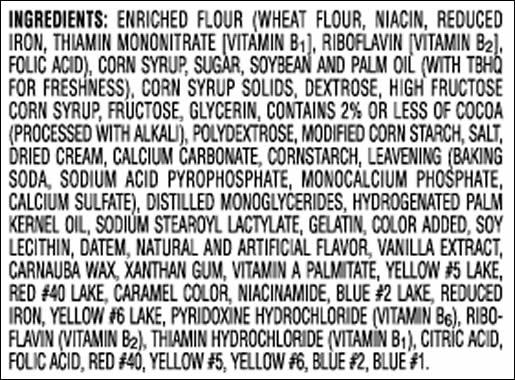
The FDA as is exists to oversee the process. The FDA cannot afford to inspect all of these companies. They rely on companies to test their products and state health agencies to inspect. The FDA is the glue that holds this all together. The FDA consists of food safety experts. They can suss out which reports are one-off and which reports point to a larger issue, based on in depth knowledge of the food in question and trace the food to its original source. In other words, the FDA doesn't actually meddle in business much unless there is an actual issue.
If Oklahoma has one standard for food and California has a different standard for food, California has no idea if Oklahoma is meeting its standards. Restaurants aren't shipping food between states, so restaurants only need to be inspected by state or city health departments. Food manufacturers are and need to be inspected on a national level. And national means Federal.
Imagine the PCA scandal without the FDA. PCA would have continued to send products in to multiple testing facilities instead of tossing the batch, leading to other products being contaminated when they share the equipment. Eventually, the products would start making people sick. At that point, out of concern of losing money, companies could cooperate with each other to figure out the common link. But companies depend on the link to be honest. In this case, seeing how he continuously lied to companies he shipped products to, Stewart Parnell would likely lie and say all the tests had come back negative for salmonella. Perhaps there's another ingredient in common.

Now companies lose the trail and Parnell keeps producing possibly tainted products. Or knowingly tainted products. Now imagine the company sends all received ingredients to a lab for testing. Stewart Parnell isolates a separate batch of peanuts from another distributor and sends those to be tested. The companies call the lab for the result. The lab says negative. Now the issue is why two labs are reading differently. Eventually companies would call multiple labs and discover what is going on. At which point they can take Parnell to court. But imagine how long all of that can take. It's also worth noting, if companies have stopped producing X food they may not get Y ingredient. And it isn't possible to break apart a granola bar and test the peanuts inside. It could be a long time before they discover the truth- or, they may not and change suppliers. In which case Stewart Parnell is still allowed to remain the food business. Versus the FDA receiving illness reports, identifying a common ingredient, communicating with state agencies and, acting on a tip, investigate the facility. In the meantime, all contaminated products are pulled from the shelves.
The FDA isn't perfect. The FDA has dealt with its own scandals. But the same is true for any state agency. Just because "federal" is in the name doesn't mean the FDA is unspeakably evil. And, as stated before, the FDA doesn't get involved until a major issue comes up. Taking the "federal" out of its name, the FDA is a collection of food safety experts and works hand in hand with the CDC and the USDA to keep the food supply safe.
Government agencies were created because companies proved themselves to be incapable of following all laws and regulations necessary to produce safe products. And the PCA scandal happened with government regulation in place. Maybe the FDA can be more solution focused and less punitive. But getting rid of it because the word "federal" is in it makes no sense. Of course it's cheaper to produce food If I can use low quality sketchy ingredients, avoid buying pasteurization machines, and not spend money cleaning the facility. That doesn't mean I should be producing food.

Where regulation is concerned, I have a simple rule. If the item stays within the state or city it was produced, the city health department or state health department is in charge of ensuring the item is safe, to the best of its ability. If the item travels outside of the state, a body must oversee the process. Our water supplies and sources are interconnected, therefore the EPA is in charge of keeping them clean and sanitary. A bbq restaurant in Los Angeles stays in Los Angeles and has no effect on anybody that did not eat there in Los Angeles, so the Los Angeles Department of Public Health inspects the restaurant. This, to me, seems logical. Let one state operate how it wants to unless the way it is operating interferes with other states. Because the world is so integrated and connected, it is necessary to track how diseases and illnesses are moving around. Hence the WHO. The scale of regulation should match the scale of the item.
These agencies could be abolished and created anew, but the same problems would arise. Where there are people there are scandals. The question is whether the FDA does more good than harm. I believe it does. If companies don't want the regulations, they need to prove they can do what they are supposed to. So far they haven't, so the regulations stay put. Especially with the recent surge in recalls.
Institutional Racism
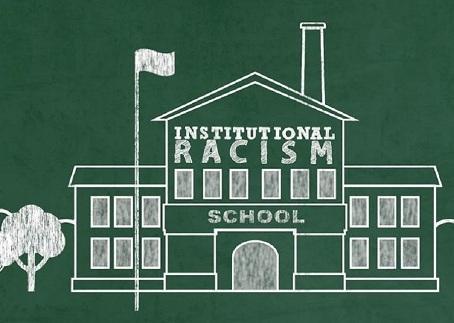
It's difficult to prove Institutional Racism exists. I, however, believe it does. But simply saying "I believe this" doesn't mean "This is true." The Harvard Study was flawed in that police departments chose whether or not to submit data. The FBI statistics are flawed in that half of them are missing (pertaining to disparity in race between unarmed people being shot). Depending on the study, the conclusion is different. Which raises the question- does the problem exist?
There are two arguments that it does not- One, black people are genetically inferior. This is actually racist. The other- fifty years ago, even twenty years ago, you could clearly observe it. Now not so much. And anecdotal evidence isn't particularly reliable. Some conservatives believe liberals have purposely pushed this idea to sway black voters and that telling people institutional racism exists if the existence of it cannot be proven is wrong.
If anybody is aware of some type of foolproof evidence, feel free to link it below. I, personally, am not. Based on what I have seen, however, I feel the data leans more in that direction.
Here would be my argument- unless the policies enacted are actually unfairly impacting other people, what's the harm in implementing them? Training police to be more tolerant- how can that possibly hurt? If a police officer can be trained to have a less itchy trigger finger, everybody of every race benefits. Body cameras allow the officer's exact behavior to be observed. It will make an officer think twice in any situation.
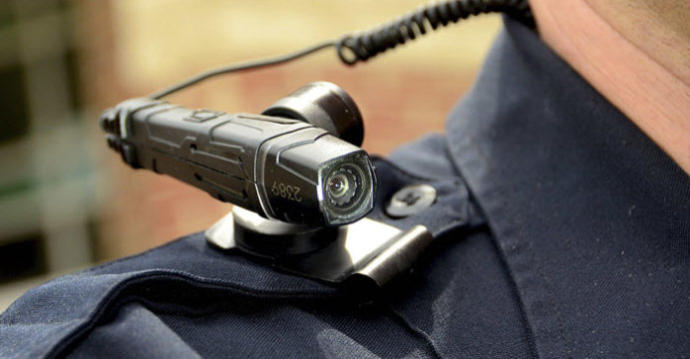
If employers are taught anti-bias training, that either changes nothing or that changes things for the better. Unless they are actually taught to discriminate against white people, I see no issue.
Same with courts. Same with every walk of life. Teaching people to discriminate less cannot possibly have a negative effect, unless they are also taught to discriminate against other people more.
If we act on the belief that institutional racism does exist and is a bad thing, I don't see the harm that would come to anybody. Crimes should be denounced. Riots and violence should be denounced. But the basic issue shouldn't be swept under the rug. Assuming institutional racism does exist, the inconvenience of anti-bias training pales in comparison. I don't believe anti-bias training should shame white people. It should just be about people understanding each other. Not tolerating actual racist behavior. Reporting hate crimes. Workers feeling comfortable.
It seems that people most enraged by institutional racism believe it exists despite lack of widespread acknowledgement. Saying "we agree" doesn't put a new idea into their minds that, if wrong, could potentially have devastating consequences. A great deal of the anger seems to come from people denying it. And, just because a problem exists doesn't mean any solution to said problem is justified. As long as the focus is on raising one group, not lowering the other, I think acknowledging institutional racism in society and exploring possible solutions is an important step.
Also, it's important to enact change through actual policy. Outsiders yelling racist and demanding white people observe their privilege really aren't helping. If policies are in place, the issues can be addressed in a logical manner by people with one common goal who understand how to achieve that goal- not white people running for DNC leadership misstating their job as "telling white people when to shut up."
I will pay you not to run again
Progressive Taxation
Income tax is entirely constitutional and to say "I don't like this amendment" is to say "I want to change the constitution." That's a slippery slope. If my goal is to bring more money into society, I would tax the rich more heavily.
The argument is that this is redistribution. The problem with that argument is that most successful economies incorporate some element of redistribution. You demand access to hospital care- Hospital demands you help fund it. As long as the progressive tax isn't too high, the idea that businesses will be discouraged from starting or expanding doesn't hold much water. Maybe it's unfair to tax the rich more- Maybe the rich aren't being fairly taxed right now. And since the rich used resources in society to become rich, it makes sense that they should contribute to society. One counterargument is that Rich use the same resources everybody else used- why should they contribute more. But, going by that logic, poor people have less access to resources, so why should they contribute the same amount? But then, the rich are contributing more if they are being taxed at the same rate because 10% of 250,000 is a lot more than 10% of 50,000. Come to think of it there's an argument to be made that people who use resources more due to health problems should pay more to those resources.
I suppose that's what makes this take a backspace free take. I actually don't have a great counterargument, though I will say this- as the constitution applies to every citizen in the United States, I believe the more people are able to live freely and own property, the better. If taxation is captivity, the Rich are currently not living freely. Higher taxation doesn't change the basic underlying principle- government demanding money. But a society in which the government does not demand money isn't a society at all. So, operating on the idea that a government must collect money in order for a society to exist, and that "freedom" is a relative term, people are still as free as the next person even if they have to obey the law. Total freedom just wouldn't work.
To be continued... and yes, I did realize after typing this part that the US has a progressive approach to taxation
Comment down below. Agree? Disagree? I'm no expert, so take this with 500,000 metric tons of salt.

More to come. As for how I did on the challenge
I backspaced insignificant words quite a few times but never significantly altered the meaning of the words.
If you want to give it a shot, I'd love to see the results. #NoGoingBackSpace
 Holidays
Holidays  Girl's Behavior
Girl's Behavior  Guy's Behavior
Guy's Behavior  Flirting
Flirting  Dating
Dating  Relationships
Relationships  Fashion & Beauty
Fashion & Beauty  Health & Fitness
Health & Fitness  Marriage & Weddings
Marriage & Weddings  Shopping & Gifts
Shopping & Gifts  Technology & Internet
Technology & Internet  Break Up & Divorce
Break Up & Divorce  Education & Career
Education & Career  Entertainment & Arts
Entertainment & Arts  Family & Friends
Family & Friends  Food & Beverage
Food & Beverage  Hobbies & Leisure
Hobbies & Leisure  Other
Other  Religion & Spirituality
Religion & Spirituality  Society & Politics
Society & Politics  Sports
Sports  Travel
Travel  Trending & News
Trending & News 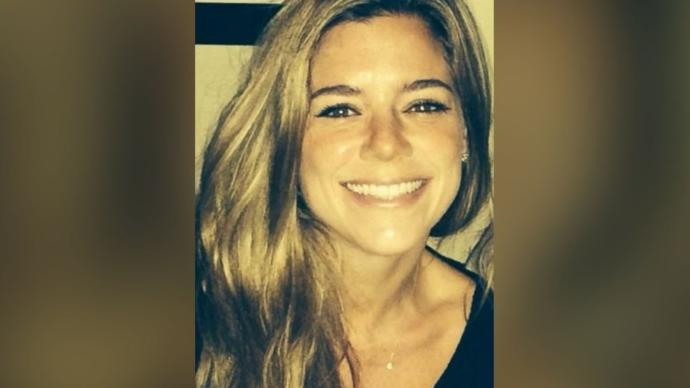
Most Helpful Opinions